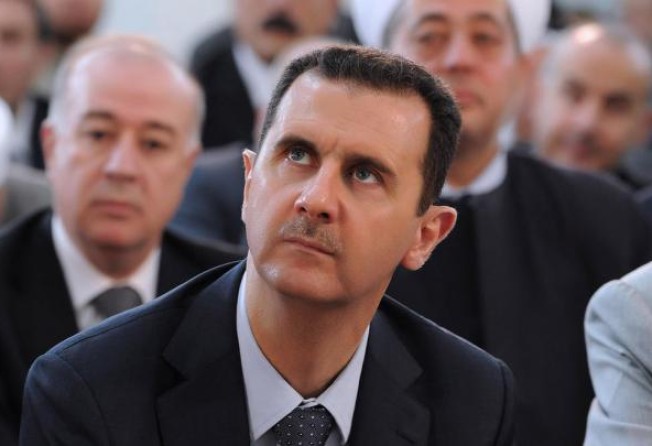Syria's Aleppo university latest target of deadly blasts
Violence comes after foreign deputy says Assad is determined to contest election next year

Two explosions struck the main university in the northern Syrian city of Aleppo yesterday, causing a still unknown number of casualties.
The violence came a day after Syria's deputy foreign minister said President Bashar al-Assad will not step down before scheduled presidential elections next year. Faisal Mekdad said Assad would run again, a declaration that lowers already diminished expectations that a political settlement can be reached.
There were conflicting reports as to what caused the blast at Aleppo University.
State TV said two rockets hit the university, killing students and people who had fled fighting elsewhere in recent months and taken refuge on the campus grounds. It did not say how many people were killed, and blamed rebels for the attack.
The Britain-based Syrian Observatory for Human Rights, which has a network of activists around the country, offered a slightly different account. It said 15 people were killed and "tens" wounded in two explosions near the university's dorms. But it said it was not clear whether the blasts were the result of shells or bombs.
Aleppo, a former commercial hub, has been a major front in the country's civil war since July. Since then, the fight in Syria's largest city has settled into a bloody stalemate between regime troops and rebels, with ferocious street battles, sniper fire and frequent exchanges of rocket and mortar rounds.
Violence also raged in other parts of Syria yesterday, with clashes in the suburbs of Damascus, and government air raids and shelling in other regions that killed dozens of people, activists said.
Mekdad's comments appear to contradict a plan proposed by international envoy Lakhdar Brahimi. Since starting his job in the summer, Brahimi has sought to advance an international plan that calls for an open-ended ceasefire between rebels and government troops and the formation of a transitional government to run the country until elections can be held.
Brahimi did not mention Assad by name in the plan, but has said the transitional government would have "full executive powers", meaning "all the authority of the state should be possessed by that government" - a description that would seem to exclude the incumbent Assad from a role.
Asked if the president wanted to run in 2014, Mekdad answered: "What's wrong with that?
"The president and many other candidates who may run will go to the people to put their programmes and to be elected by the people. The ballot box will be the place where the future of the leadership will be decided."
Mekdad said it would be undemocratic to tell Assad not to run for the post again.